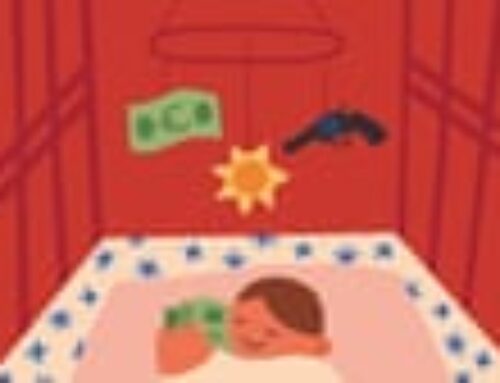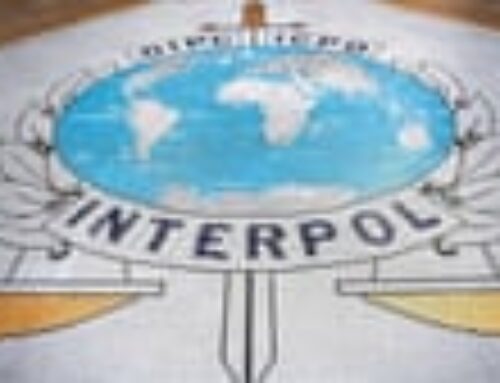The mayor of a city on the frontline of the illegal drug trade has said that a “negligent” attitude to recreational drug use, including an acceptance of cocaine as the middle-class narcotic of choice, has led to violence and corruption in Europe’s poorest neighbourhoods.
As the Netherlands digests three life sentences handed out in the criminal trial of drug baron Ridouan Taghi and his “well-oiled murder machine” gang, Ahmed Aboutaleb, mayor of Rotterdam, has demanded authorities take a tougher line on cocaine use.
In contrast with the mayor of Amsterdam, who has called for the regulation of the sale and use of cocaine as a means of hitting dealers’ profits, Aboutaleb wants authorities to clamp down harder on recreational use. Rotterdam, home to Europe’s biggest port, is one of the continent’s main north-western gateways for drug smugglers, along with Antwerp and Le Havre.
“I think we have been negligent about this dimension [of drug users], society as a whole, not just in the Netherlands but also in Europe,” Aboutaleb told the Guardian in an exclusive interview.
“This is because cocaine has mainly been used in the higher echelons of society. And that has been seen as less serious, just as crime in higher echelons is often seen as less serious. There is an advanced form of acceptance and socialisation around cocaine.
“Pleas to regulate or legalise drugs … ignore the fact that entire groups of young people in our working-class neighbourhoods are confronted with this misery and are corrupted. The phenomenon of high-class users enjoying a line on a Friday night has heavy repercussions in working-class neighbourhoods.”
Rotterdam last year ran a hard-hitting campaign linking drug use with gang-related violence. One poster showed a coffin with a cross made up of two lines of cocaine and the text: “Your hit, his execution.”
Aboutaleb, who has watched with horror as his home becomes a key target for international drug smuggling, wants a serious look at tolerance policy around all illegal drugs.
“I don’t want to close my eyes to this any more: I’m putting it on the agenda,” he said. “And I question that acceptance of use. I have no problem with accepting that people have different theories. But I don’t want to put a banana and an apple and a line of coke on the same shelf, with a government stamp: ‘all good’.”
In parts of Europe, there are moves towards legalising cannabis – to varying degrees – for personal use. A trial has just begun in two municipalities in the Netherlands to regulate cannabis growing, while Germany last week partially legalised cannabis for adults’ personal use.
But Aboutaleb, who steps down after 15 years in autumn, has no time for such efforts. “We’ve been too relaxed about cannabis for a long time. You can buy cannabis when you are 18 years old, while everyone knows that cannabis affects the growth of your brain until the age of 25. But there is also no social debate about it. We just merrily plough on.”
The mayor returned earlier this month from a visit to Latin America and wants to see more support and financial aid given to countries there, including Ecuador, which is in a state of emergency after attacks in January by organised crime gangs.
He said the consequences of lax drug policy were felt not only in poor Latin American farming communities but also in deprived areas of Europe where drug gangs recruit vulnerable teenagers to collect drugs from containers at harbours.
after newsletter promotion
“This is a big story and it starts with production in South America,” he said. “Those farmers have their backs against the wall. They have to produce, because if they don’t [he mimes a gun]. And even if they wanted to switch to another crop … they don’t get a fair price. The world is just throwing those people into the hands of the criminals.”
Aboutaleb said the violence seen in Latin America could all too easily land in Europe, referring to the trial of Taghi and other gang members, during which the brother, lawyer, and a journalist representing the crown witness Nabil B were shot. Dutch justice ministers said the killings – which are subject to separate legal proceedings- undermined the rule of law and created a state of “narco-terrorism”.
“It’s too much money,” said Aboutaleb. “And a lot of money means that you can also buy a lot of power. You can buy corruption and weapons. And you can train people to use those weapons. Before you know it, we are all in the greatest possible woe.
“We have thought for years that there was a red line. Journalists are being shot down, lawyers are being shot down … I don’t think we should let ourselves be lulled to sleep. It’s more dangerous than we think.”
One thing that would not help, he added, was a lazy equivalence between ethnicity and crime. Dutch-Moroccan criminals such as Taghi and his gang have been dubbed the “Mocro Mafia”.
The Rotterdam mayor added that he himself had been investigated “down to his socks” for suspected money laundering, simply for transferring money for an uncle’s surgery in Morocco, and that thousands with minority ethnic backgrounds were victims of misguided Dutch profiling.
“Experience teaches us that, in this world of drug crime, integration has been perfected – not at the universities,” he said. “It is a socioeconomic issue rather than an ethnic issue.”




